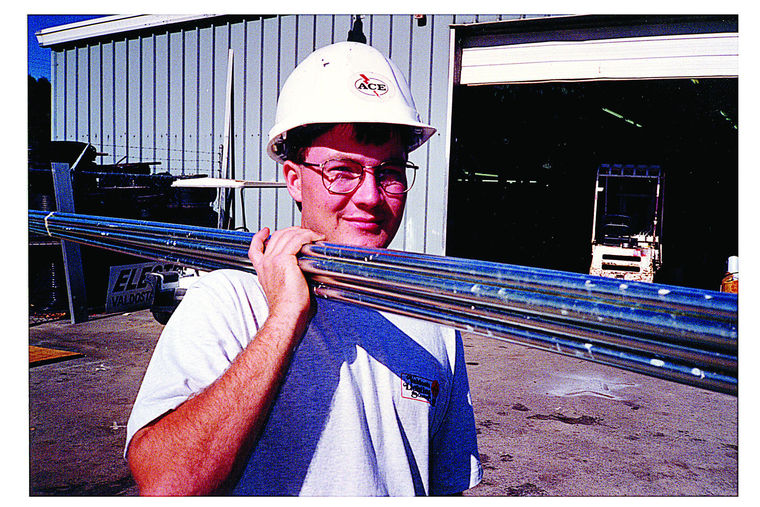
VALDOSTA — Tom Stalvey Sr. was just out of high school when he started thinking about what he was going to do with his life.
“I was raised on a farm, but at the time, farming wasn’t very profitable,” said Stalvey. “I was just out of high school and realized I needed to do something to prepare myself for life, so I went to Valdosta Tech.”
Stalvey signed up for Valdosta Tech’s course in electrical technology.
“I had a great instructor,” said Stalvey. “It’s something I immediately realized I liked doing.”
After finishing the two-year program, Stalvey started working for local contractors in Valdosta while working toward his master’s license.
Eventually, he started working with Chuck May’s construction business and the two of them formed Ace Electric in July 1975.
Not long afterwards, business — both at the construction company and Ace Electric — took off.
“We pretty quickly realized we couldn’t play ball with two different places,” said Stalvey.
Since Tom had graduated from Valdosta Tech, his brother, Bobby Stalvey Sr. had been through the electrical technology program and he joined Tom at Ace Electric in March 1976, buying out May’s part of the company.
In the early years, the company’s work was split between residential work in Valdosta and restaurant and industrial work through Ace’s Atlanta office.
“We were fortunate enough to get an account with U.S. General Construction,” said Tom. “They built all kinds of restaurants, but particularly they were the main construction wing of Pizza Hut. Probably in the first seven years of Ace Electric, we always had at least one Pizza Hut going.”
Slowly, Ace started getting involved in larger projects.
One of its first large projects was the relighting of the Atlanta’s Farmer’s Market in 1982, transitioning from incandescent to fluorescent bulbs.
The five-phase project lasted two-and-a-half years.
During the next couple of decades, Ace Electric continued to grow and expand, opening an office in Columbus in the mid-’80s and one in Warner Robins a couple of years later.
In 1998, the company went public as part of Integrated Electrical Services.
IES came about through a trade association: Independent Electrical Contractors.
The association hosted forums where contractors who weren’t in competition with each other could trade best practices and talk about the industry.
At a couple of the forums, the talk turned to building a company together and a number of contractors decided to do just that.
Becoming part of a large, publicly traded company helped Ace expand into more markets in the southeastern United States, gaining new customers that it still works with today, but it also came with its share of headaches.
“When you join a public company, all of a sudden you have the pressure of Wall Street. It was pretty good except for that.”
To raise capital, IES started offering companies a chance to buy themselves back in the early to mid 2000s, to return to being a privately held company.
“That’s what we did,” said Tom. “We were extremely proud when we got the opportunity to buy it back.”
Since buying itself back in 2004, Ace Electric has continued to grow.
In 2005, Ace took on its hardest job when the Atlanta Motor Speedway got hit by an F2 tornado.
With 90 days to get the speedway ready for race, Ace called in electricians from all of its offices with more than 100 working the job.
In 2006, it opened a North Carolina office, absorbing a North Carolina electrical contractor Tom had worked with while at IES that IES had decided to shut down.
“We were able to give a job to people who were losing their job,” said Tom.
Ace Electric also worked to further diversify its business, working projects from health care, military and educational institutions to alternative energy and correctional facilities.
“If it wasn’t for our diversity, we wouldn’t be siting here having this conversation,” said Tommy Stalvey Jr., who’s part of the second generation at the company along with Bobby Stalvey Jr. “Our diversity is what made us able to weather the recession.”
Eventually, they’d like to see the third generation of Stalveys join the company.
Tommy would like to see further expansion into alternative energy projects, like a solar-power project Ace is currently working on.
“Things progress in our business from the West Coast to the East Coast,” said Tommy. “Solar’s been rapidly expanding on the West Coast and it’s starting to make its way to the East Coast. Alternative energy, I think, is going to be a big plus for us in the next five or 10 years.”